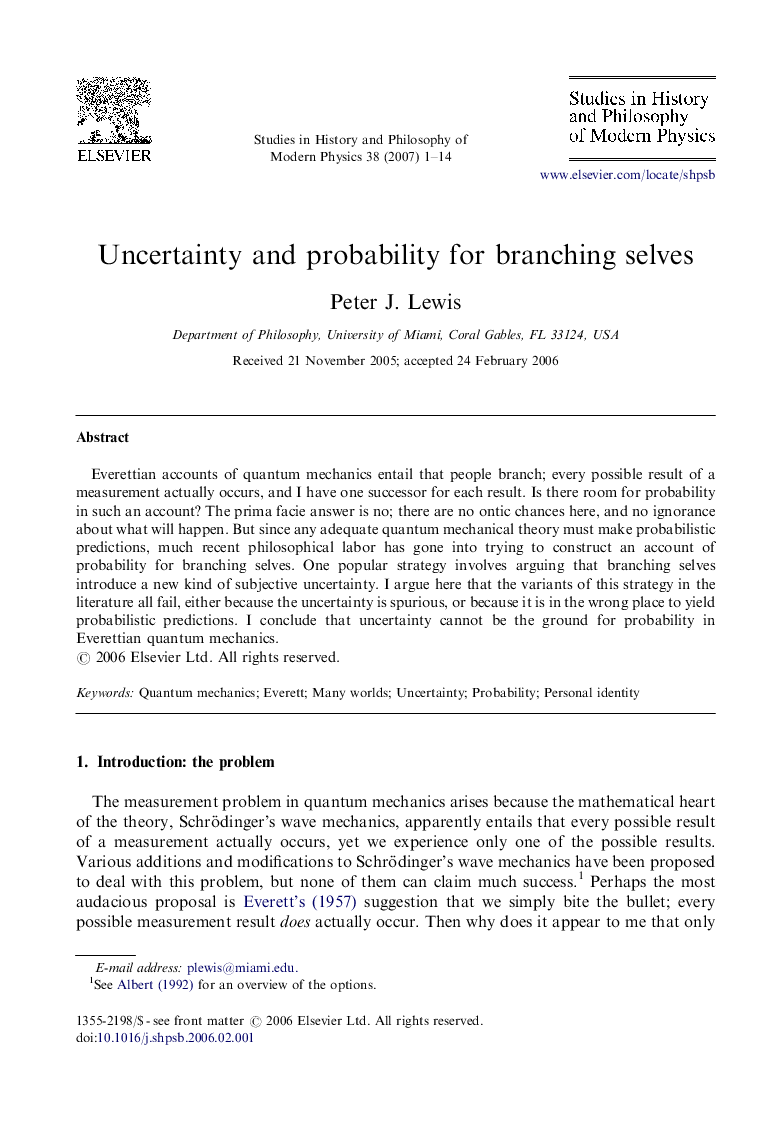| Article ID | Journal | Published Year | Pages | File Type |
|---|---|---|---|---|
| 1161657 | Studies in History and Philosophy of Science Part B: Studies in History and Philosophy of Modern Physics | 2007 | 14 Pages |
Everettian accounts of quantum mechanics entail that people branch; every possible result of a measurement actually occurs, and I have one successor for each result. Is there room for probability in such an account? The prima facie answer is no; there are no ontic chances here, and no ignorance about what will happen. But since any adequate quantum mechanical theory must make probabilistic predictions, much recent philosophical labor has gone into trying to construct an account of probability for branching selves. One popular strategy involves arguing that branching selves introduce a new kind of subjective uncertainty. I argue here that the variants of this strategy in the literature all fail, either because the uncertainty is spurious, or because it is in the wrong place to yield probabilistic predictions. I conclude that uncertainty cannot be the ground for probability in Everettian quantum mechanics.
